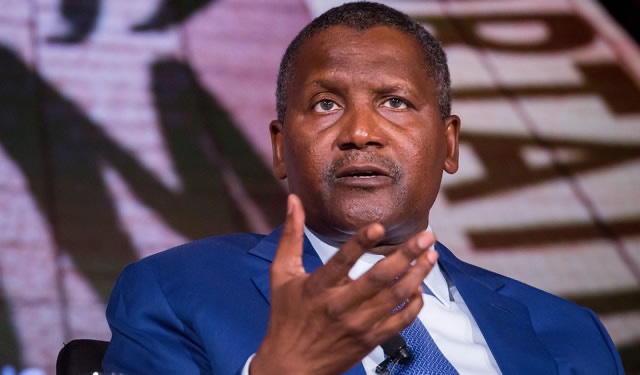
“Nigeria Should Be Generating 60,000MW of Electricity” — Dangote Laments Power Crisis

Africa’s richest man, Aliko Dangote, has once again weighed in on Nigeria’s chronic power crisis, stating emphatically that the country should be generating at least 60,000 megawatts (MW) of electricity if it truly wants to industrialize and compete globally.
Speaking at a high-level economic summit in Lagos, the billionaire industrialist expressed deep frustration over the nation’s energy output, which currently hovers around a mere 4,000 to 5,000MW — a staggering shortfall for a population of over 200 million people.
“A country with our population, our economic potential, our natural resources — we should not be struggling with 4,000MW. Nigeria should be doing nothing less than 60,000MW,” Dangote said. “You can’t industrialize, you can’t manufacture competitively, and you can’t grow jobs without stable power.”
Dangote, whose $20 billion conglomerate spans cement, sugar, oil refining, and petrochemicals, noted that power remains the single biggest obstacle to doing business in Nigeria.
He revealed that many of his facilities, including the Dangote Refinery, have been forced to build independent power plants to ensure uninterrupted operations — a costly and unsustainable model for small businesses.
His comments come amid renewed debates about Nigeria’s energy reforms, as the federal government pushes for increased privatization and decentralization of the power sector. Yet, citizens continue to suffer from blackouts, unreliable grids, and skyrocketing generator costs.
Social media users have quickly seized on Dangote’s comments, with many saying it reflects the true scale of Nigeria’s underdevelopment.
> “If a man like Dangote is complaining about electricity, imagine the average Nigerian,” one X user posted.
“We don’t have a power problem — we have a leadership problem,” another wrote.
Experts agree that to reach 60,000MW, Nigeria would need a multi-decade commitment involving investment in gas infrastructure, solar expansion, transmission upgrades, and regulatory overhauls. As it stands, even the country’s existing generation capacity is underutilized due to a failing grid and systemic bottlenecks.
Dangote’s warning is clear: without adequate power, Nigeria’s dream of becoming a true economic powerhouse may remain exactly that — a dream.


